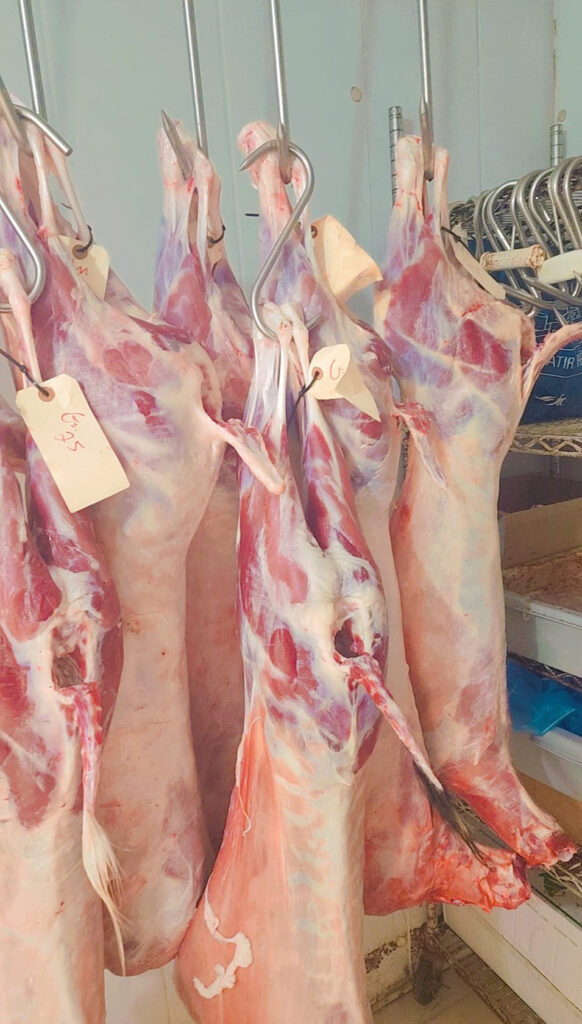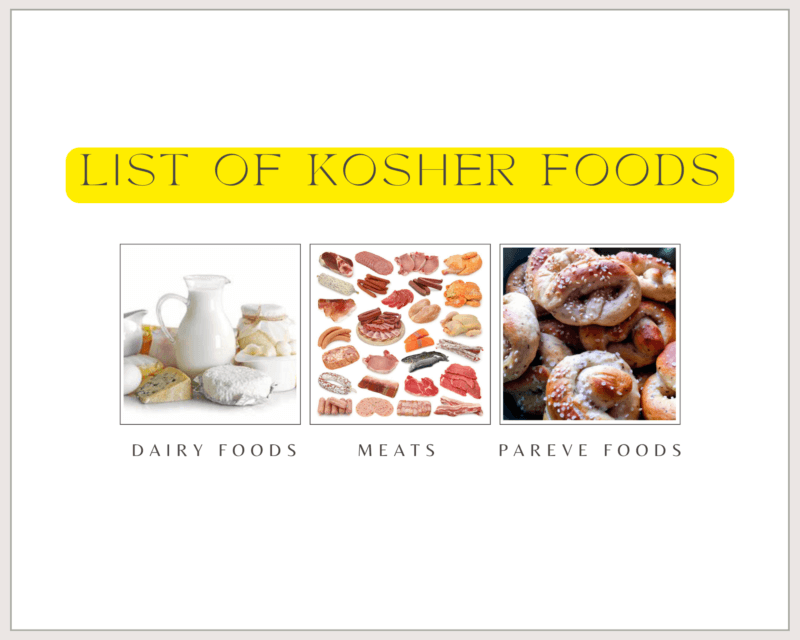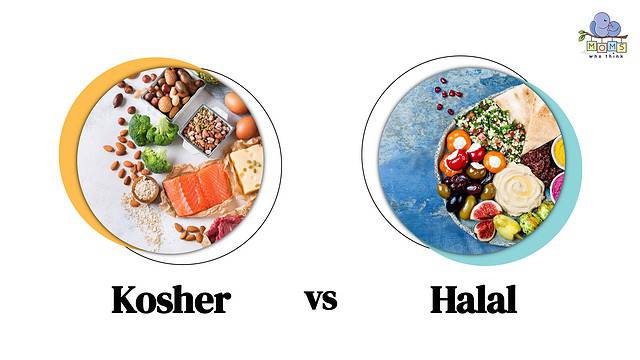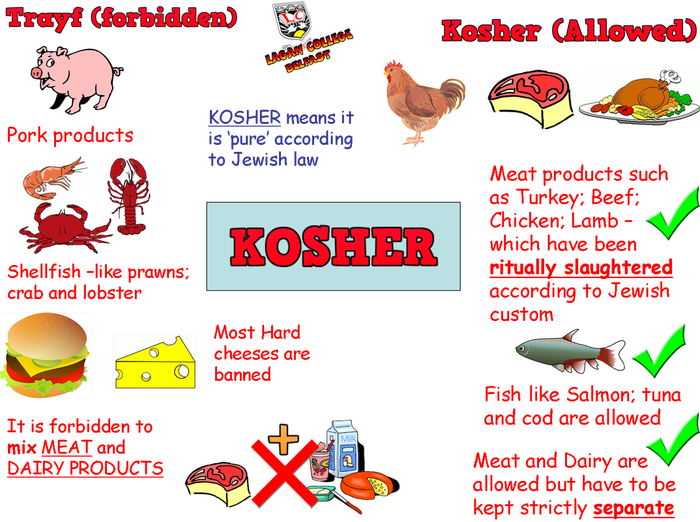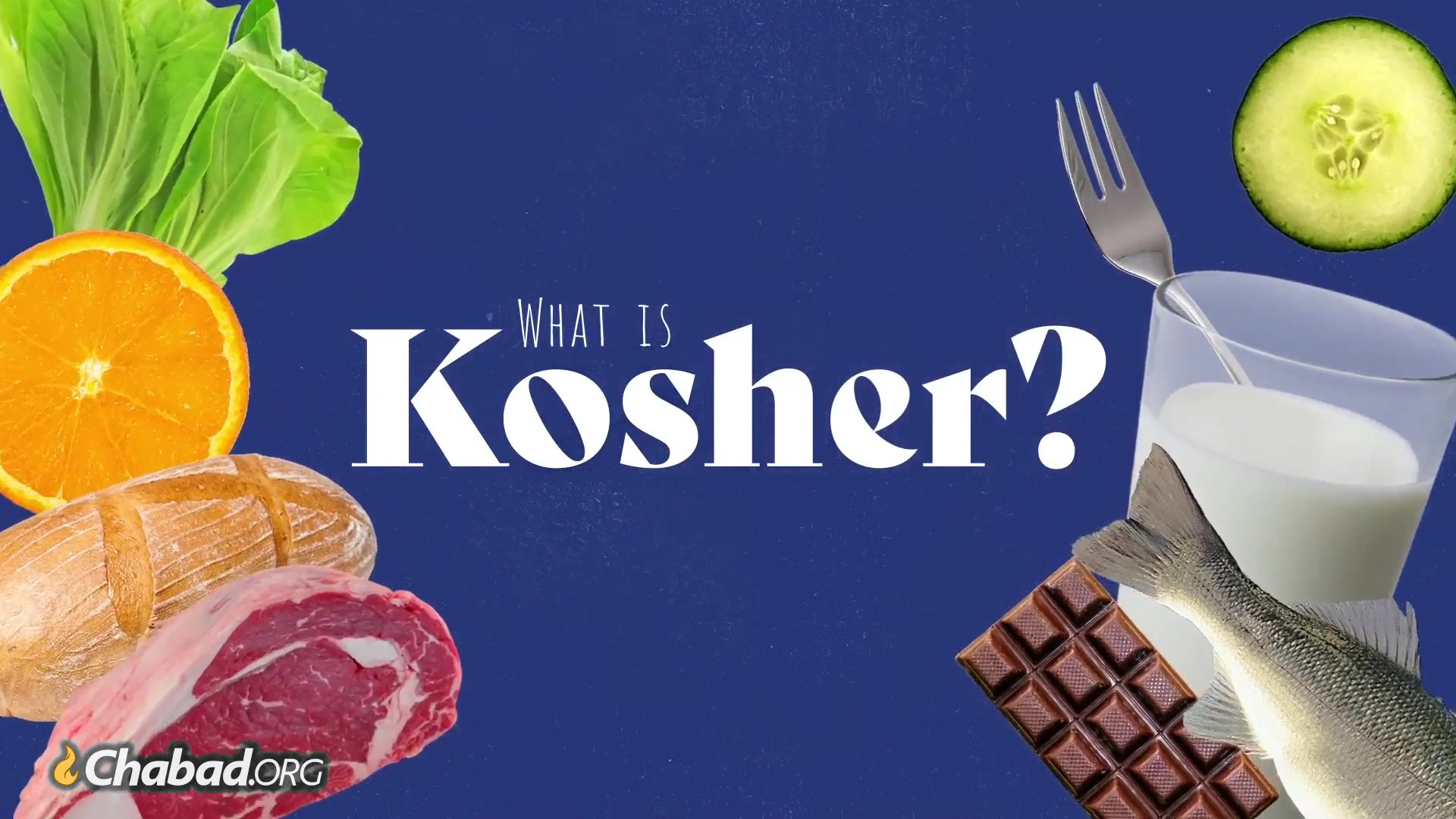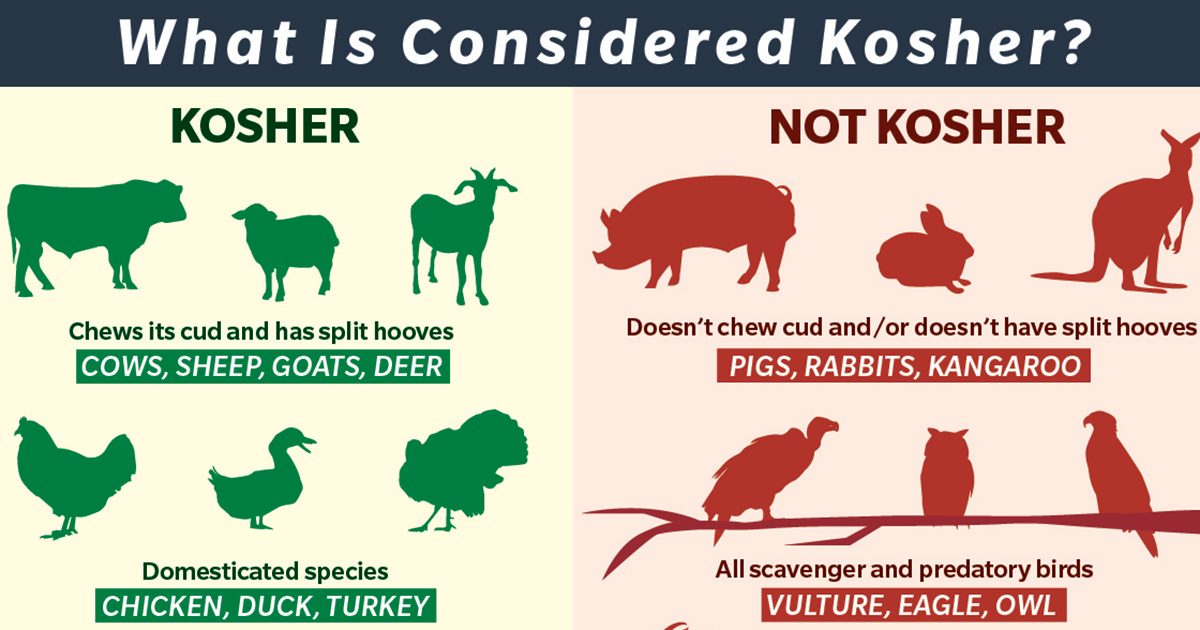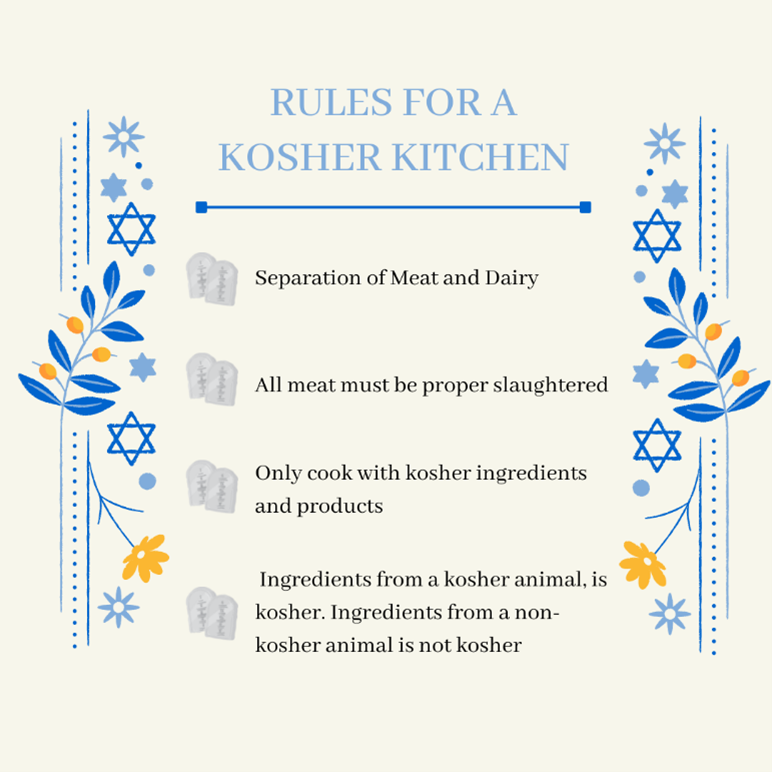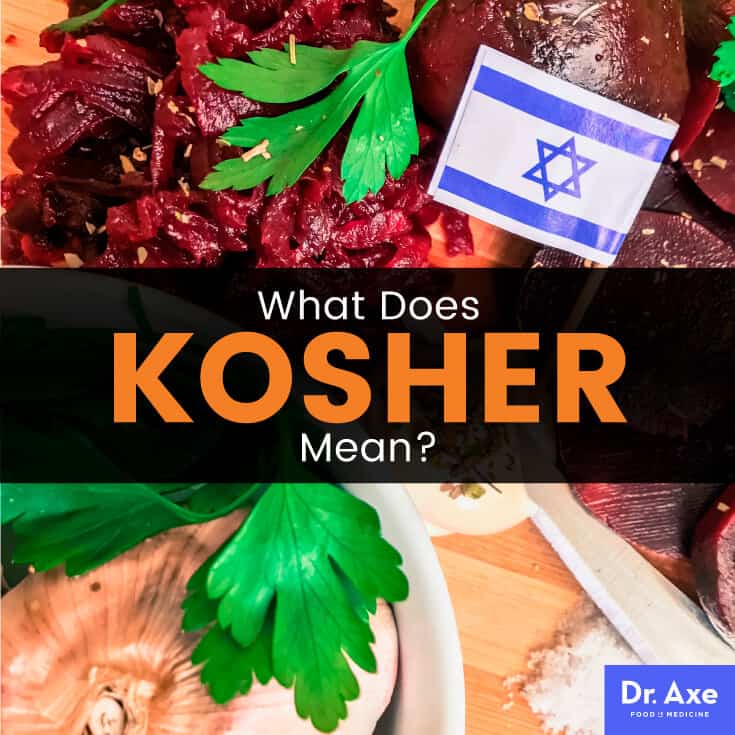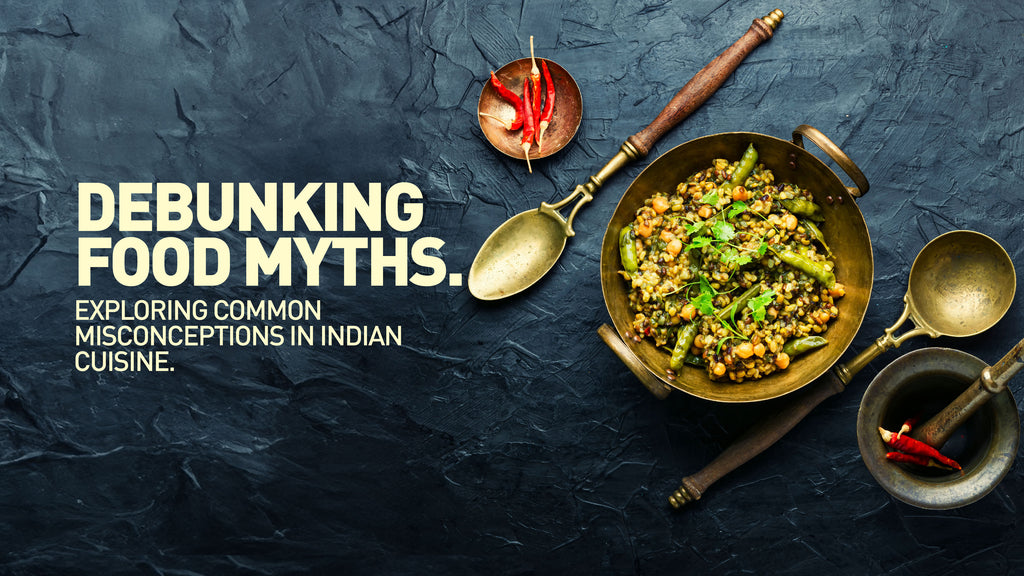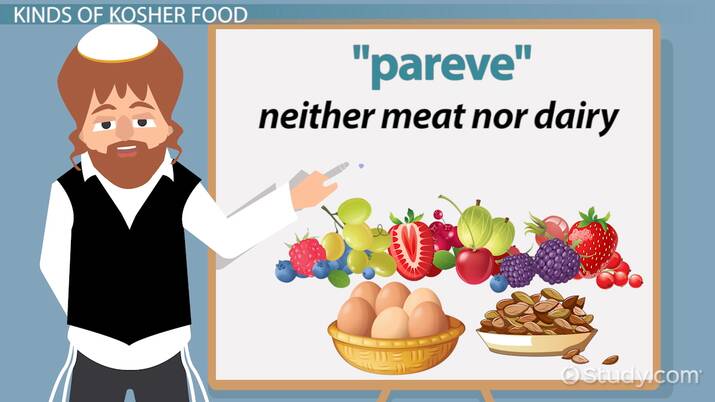What Are Some Common Misconceptions About Kosher Food

The aroma of simmering chicken soup, infused with dill and a hint of garlic, wafts through the air, a comforting scent that speaks of tradition and family. On the counter, a carefully arranged platter of vibrant fruits and crisp vegetables hints at the meal to come. But behind this seemingly simple scene lies a world of intricate rules and observances, a world often misunderstood by those unfamiliar with the tenets of kashrut, or Jewish dietary law.
This article aims to dispel some common misconceptions surrounding kosher food. We will delve into the real meaning behind the kosher label, moving beyond the often-simplistic notions of what it entails. Understanding these nuances can foster greater cultural appreciation and awareness, breaking down barriers born from misinformation.
The Kosher Myth-Busters
One of the most prevalent misconceptions is that kosher food is simply "blessed" by a rabbi. While a rabbi or a trained representative (mashgiach) does play a crucial role in the certification process, the core of kashrut lies in adherence to a complex system of rules governing permitted and forbidden foods, as well as how food is prepared and handled.
Another widespread belief is that kosher food is inherently healthier or somehow superior in quality. Kosher certification focuses on adherence to religious law, not necessarily on nutritional value or quality standards in the conventional sense. While many kosher products are indeed high-quality, this is often a result of the meticulous production processes required for certification, rather than a specific aim of kashrut itself.
Finally, some believe that kosher food is only for Jewish people. This is untrue. Many individuals, regardless of their religious beliefs, choose kosher products for various reasons, including perceived quality, allergen concerns, or simply because they trust the rigorous oversight involved in the certification process.
Delving Deeper: What Kashrut Really Entails
The laws of kashrut are rooted in the Torah, and elaborated upon in the Talmud and subsequent rabbinic rulings. These laws dictate which animals are permissible to eat, how they must be slaughtered (shechita), and how meat and dairy products must be kept separate.
Permitted animals, such as cattle, sheep, and goats, must be slaughtered by a trained shochet, who uses a surgically sharp knife to ensure a swift and humane death. The animal's blood must be completely drained, as the consumption of blood is strictly forbidden. Poultry must also be slaughtered in a specific manner.
The separation of meat and dairy is a cornerstone of kashrut. This prohibition extends not only to consuming the two together but also to cooking them in the same utensils or storing them together. A kosher kitchen typically has separate sets of dishes, cutlery, cookware, and even sinks for meat and dairy. This separation ensures that these two food groups never come into contact during preparation, cooking, or consumption.
The Role of the Mashgiach
The mashgiach, or kosher supervisor, plays a vital role in ensuring that food production facilities adhere to kosher laws. They are responsible for overseeing all aspects of the process, from the sourcing of ingredients to the final packaging of the product.
The mashgiach verifies that all ingredients are kosher-certified and that the equipment used is properly cleaned and free from any non-kosher residue. They also supervise the slaughtering process to ensure it is performed according to Jewish law. Their presence is crucial for maintaining the integrity of the kosher certification.
Beyond the Basics: Common Kosher Concerns
Beyond the fundamental rules of permitted animals and the separation of meat and dairy, there are other important considerations within kashrut. These include the laws pertaining to insects in food, the use of certain grapes and wines (yayin nesekh), and the restrictions during the Jewish holiday of Passover (Pesach).
Insects are generally forbidden in kosher food. Vegetables and fruits that are prone to infestation must be carefully inspected and cleaned to ensure they are free from insects. This can be a time-consuming process, but it is essential for maintaining kosher standards.
The laws surrounding yayin nesekh, or wine offered to idols, prohibit the consumption of wine produced or handled by non-Jews in certain circumstances. Kosher wine, often labeled "mevushal," undergoes a heating process that renders it permissible even if handled by non-Jews. However, many kosher consumers prefer non-mevushal wine produced under strict supervision.
Pesach: A Unique Set of Restrictions
The holiday of Pesach, or Passover, brings with it an entirely separate set of kosher laws. During Passover, Jews are prohibited from consuming or possessing chametz, which refers to grains that have been allowed to leaven (wheat, barley, rye, oats, and spelt). This restriction extends to all products containing these grains, including bread, pasta, and most baked goods.
To observe Passover properly, many Jewish families thoroughly clean their homes to remove any traces of chametz. They also use special sets of dishes and cookware that are reserved for Passover use only. The dietary restrictions during Passover are among the most stringent in Jewish law.
The Significance of Kosher Certification
Kosher certification provides assurance to consumers that a product meets the requirements of Jewish law. This certification is typically provided by a reputable kosher certifying agency, which employs trained mashgichim to oversee the production process.
The presence of a kosher symbol, such as a circle U (OU), circle K (OK), or KOF-K, on a product indicates that it has been certified kosher by a recognized agency. These symbols are a valuable tool for consumers who wish to purchase kosher products with confidence.
According to data from Lubicom Marketing Consulting, the kosher food market is a multi-billion dollar industry, reflecting the growing demand for kosher products worldwide. This demand is driven not only by Jewish consumers but also by individuals seeking products perceived to be of higher quality or free from certain ingredients.
Beyond the Label: A Deeper Appreciation
Understanding the complexities of kashrut goes beyond simply recognizing the kosher symbols on food packaging. It involves appreciating the historical and cultural significance of these laws, as well as the dedication and meticulousness required to adhere to them. By dispelling common misconceptions and gaining a more nuanced understanding, we can foster greater respect for Jewish traditions and dietary practices.
Ultimately, the laws of kashrut are not merely a set of rules; they are an integral part of Jewish identity and a reflection of a deep connection to tradition and spirituality. Recognizing this provides a richer understanding of both kosher food and the community that observes these laws.

